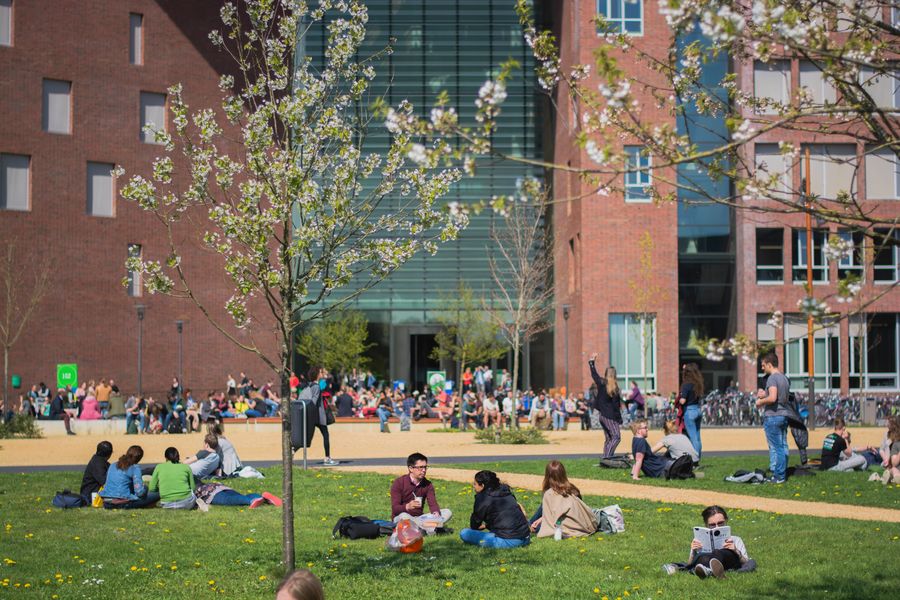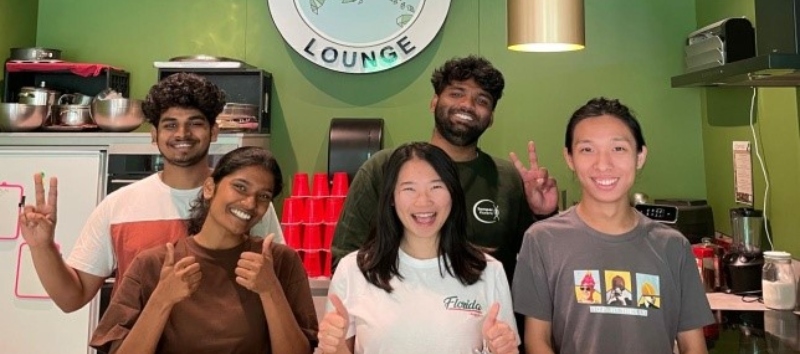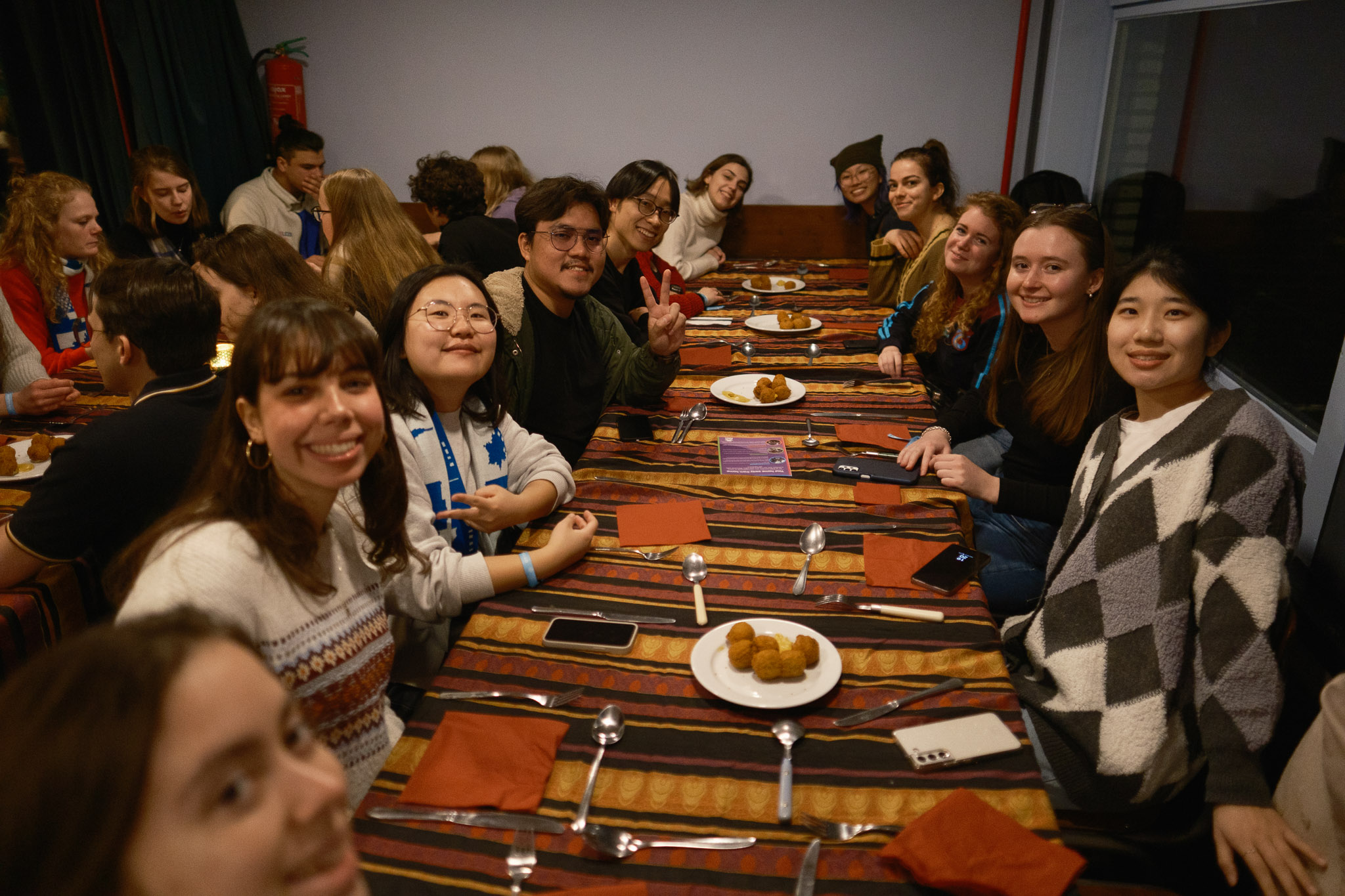By Kevin Aditya Prathama
Not everyone goes straight from their Bachelor’s degree to a Master’s. Some get a job and work for a few years first. Like Resource student editor Kevin Aditya Prathana. So now he’s a thirty-something among the twenty-somethings. What’s that like? And how do other older Master’s students find it? He asked three of them.
Kevin (32)
‘Last year, I decided to leave the development consulting job I’d been doing for the previous five years to start a Master’s in Development and Rural Innovation at WUR. Coming from Indonesia with my wife — who was going to study at Delft Technical University — I suddenly found myself among people of diverse nationalities and backgrounds. But what struck me most was that most of them were in their early or mid-twenties, while I started a month after I turned 31. I learned that, especially in the Netherlands, most people go straight on to a Master’s degree after graduating from their Bachelor’s programme, so people around my age at the campus are typically either PhD students or WUR employees.’
‘While I was initially worried about not being able to fit in, I eventually made friends with students on my programme and beyond, and learned a lot about their lives, hopes and worries, from the current political climate to future job prospects. A year in, I get along with many people just fine and I feel like I am getting a second chance at being a twenty-something — even if I never really figured out how to use Snapchat!’
‘Throughout my studies I also encountered a few other older Master’s students who started in their thirties or later, each with their own circumstances and challenges, but also excitement and eagerness to go back to the classroom. I talked with a few of them to find out what life at WUR’s been like for them so far, and whether age is really just a number.’
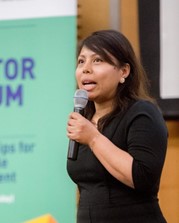
Philline (40+)
‘Age-wise, a lot of my fellow students could be my kids!’
‘I’m Philline from the Philippines, and I’m currently doing a Master’s in Governance and Sustainable Transformations. I have worked in the sustainability sector for the last 15 years. In the Philippines I run an energy transition campaign and a decentralized solar technology startup. I’m still running that remotely from the Netherlands, where I’ve lived with my husband for the last four years.’
‘I enrolled in this programme because I wanted to be in a space where I can pass on my knowledge and lived experience in Asia Pacific on the fight for climate justice to young people. In my programme, I am very inspired by the people from my cohort who are very politically aware on climate justice issues, and listening to them speak gives me energy to go to classes. But I am also aware that I have more experience, and so I restrain myself from speaking too much because the learning process is different for me than it is for someone of 22 or 23. In terms of age, a lot of them could be my kids! I see the multiple ways I could feel awkward among these young people, but I just choose not to, because what for? I enjoy learning new things and I find myself offering advice to them on internship opportunities or experiences in working in international organizations. I feel like what I know can be put to some use. I am thinking of going on a pathway to be a lecturer by first becoming a teaching assistant, and perhaps eventually pursuing a PhD.’
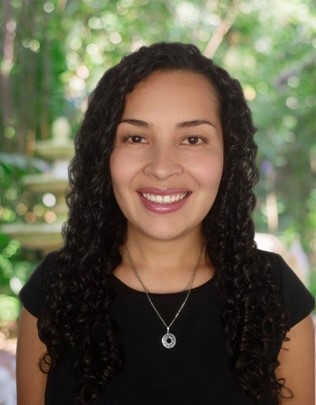
Nati (34)
‘I miss my family but because I’m a bit older I can cope with that better, I think’
‘I’m Nati, an environmental engineer from Colombia. Previously I worked for a big airline in Latin America on their climate change strategies. It was difficult to create change because there’s not much in place yet for airlines. So I decided to do a Master’s in Environmental Sciences at WUR to be able to make a meaningful contribution to addressing climate change. Once I arrived here, I found out that most people do their Master’s in their twenties, and when we talk about age, people are surprised to hear that I’m 34 and think I don’t look like I’m in my thirties – which gets me thinking, do I look immature? In the first months I had to get used to the idea that I am older than others, but then I started to just have fun, and it feels like going back a decade in your social life. In Latin America, older people are not that open to new things, but I like it that Wageningen is so international that I can open my mind to experiencing other cultures. Off-campus, I also meet people in their thirties that are not students in Wageningen, so I have a balance between hanging out with younger people and people my age.’
‘I’m happy with my Master’s because I have a good professional perspective and I know this programme is where I need to be. I miss my friends and family a lot, but at the same time I think I’m more resistant to being depressed about that, perhaps because I’m more mature and can manage my feelings and understand that I’m only here temporarily. I’m thinking of doing a PhD at WUR after I graduate, because I want to continue researching and contributing to climate change issues, but I’m also keeping the option open of getting a job, preferably in addressing climate change for the aviation industry. For now I look forward to doing my internship to get used to the work environment in the Netherlands. From what I see, there is a better work-life balance here compared to when I worked in Colombia.’
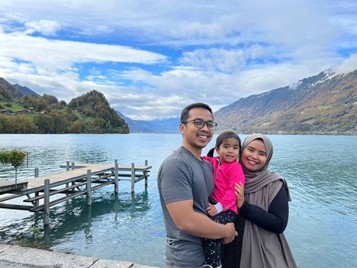
Mala (30) and Ikhsan (30)
‘I can’t talk to my coursemates about parenting and children’
‘We are from Indonesia and we are here at WUR for our Master’s degrees, together with our four-year-old, Cia! We both turned 30 this year.’
‘I’m Mala and I’m pursuing a Master’s in Environmental Sciences at WUR. Currently I am still employed as a researcher at the Government of Indonesia’s National Research and Innovation Agency. Most of the employees there have a Master’s or doctoral degree, so I decided to pursue one at WUR, partly because my father was also a WUR graduate. Coming here, the challenging part was finding housing for a family that was within our budget. Luckily we were able to talk to other Indonesians who have also brought their families here. It’s crucial to get family housing so that we can register Cia for the daycare, because it would be too much for both of us to be doing a Master’s degree while having Cia at home all day. It’s great that Cia enjoys daycare and even speaks better Dutch than us now! It was difficult last winter with our workloads and caring for Cia and I was homesick, so my parents visited us here.’
‘However, my friends here are all very understanding about the fact that I have to be really strict about how I manage my time because I have a child. I also love that my circle of friends will start a house party earlier at 7 so we can go home by 10. But I can’t talk to my coursemates about parenting and children – I do that with people like other parents at the daycare centre, where I chat about what food our kids eat or which playground to go to.’I’m Mala and I’m pursuing a Master’s in Environmental Sciences at WUR. Currently I am still employed as a researcher at the Government of Indonesia’s National Research and Innovation Agency. Most of the employees there have a Master’s or doctoral degree, so I decided to pursue one at WUR, partly because my father was also a WUR graduate. Coming here, the challenging part was finding housing for a family that was within our budget. Luckily we were able to talk to other Indonesians who have also brought their families here. It’s crucial to get family housing so that we can register Cia for the daycare, because it would be too much for both of us to be doing a Master’s degree while having Cia at home all day. It’s great that Cia enjoys daycare and even speaks better Dutch than us now! It was difficult last winter with our workloads and caring for Cia and I was homesick, so my parents visited us here. However, my friends here are all very understanding about the fact that I have to be really strict about how I manage my time because I have a child. I also love that my circle of friends will start a house party earlier at 7 so we can go home by 10. But I can’t talk to my coursemates about parenting and children – I do that with people like other parents at the daycare centre, where I chat about what food our kids eat or which playground to go to.’
‘I’m Ikhsan and I am doing a Master’s in Supply Chain Analysis. Before coming here I worked at an e-grocery startup in Indonesia, I feel we are very fortunate to be able to pursue our Master’s at the same time. Studying here, I don’t notice much difference being an older student academically, except that I have more experience than others. It’s also good to have work experience because I already have experience of applying what I learn in class in real business cases. But socially it’s more challenging because I set a high standard for myself and my family, so after classes I choose to go home, feed and teach Cia, and basically dedicate my time to my family. I do have FOMO (fear of missing out) sometimes when I see people joining associations and organizing activities, but I do have a family now. I also feel that students here are not overly ambitious, so when it’s time to go home, we all go home instead of working overtime on assignments. Which is good for me.’

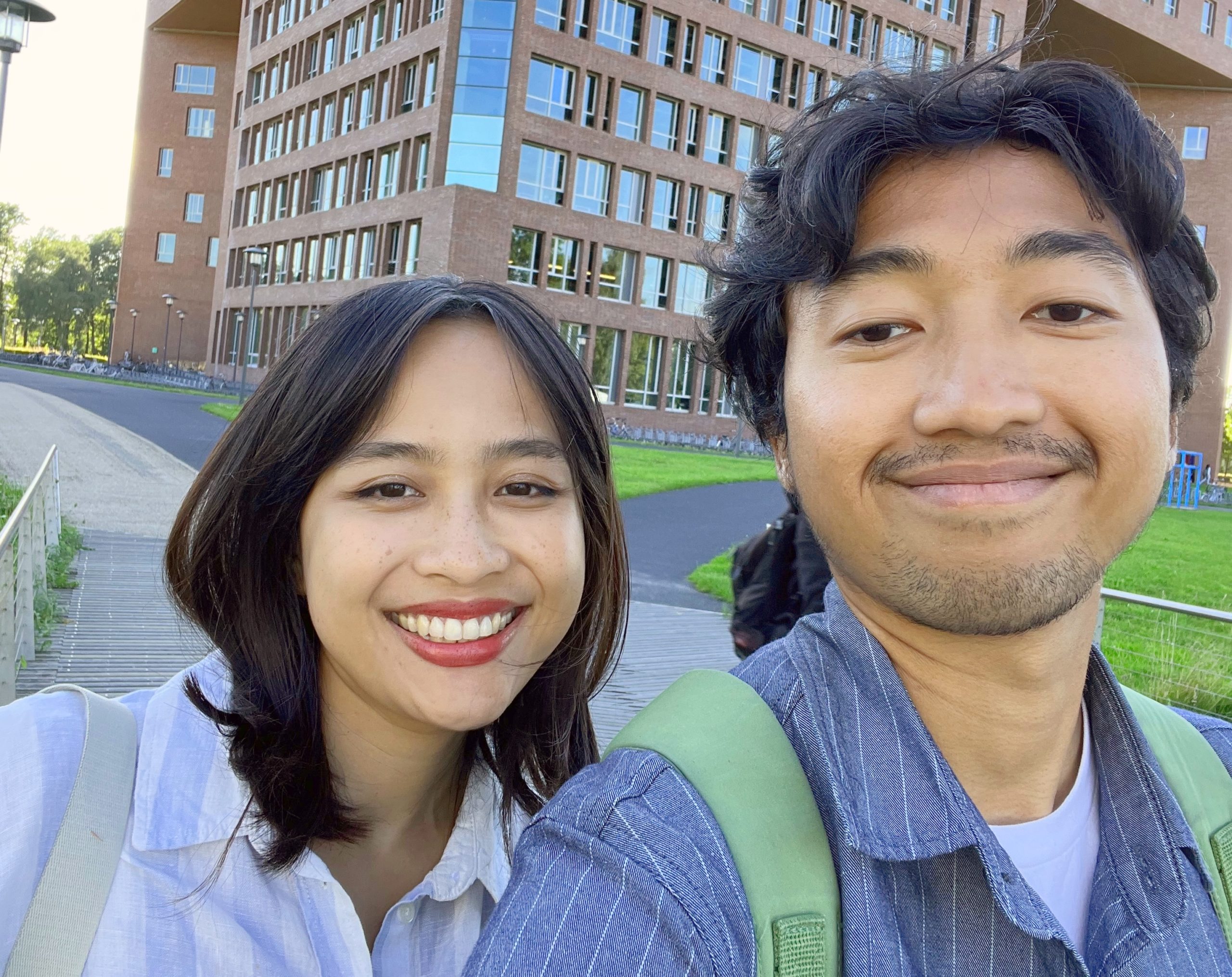 Kevin Aditya Prathama (32) came from Indonesia with his wife — who was going to study at Delft Technical University. Own photo
Kevin Aditya Prathama (32) came from Indonesia with his wife — who was going to study at Delft Technical University. Own photo 